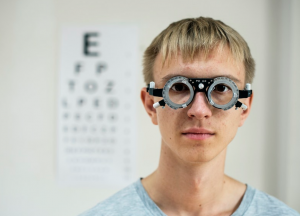5 Symptoms and Sign of Diabetes

Diabetes is a widespread disease that affects nearly four million people in the UK. Its prevalence is expected to rise to five million more as the year passes by. There are two types of diabetes; type 1 and type 2. The first is characterized by a lack of insulin production, while in the second is where cells are unable to work correctly with insulin. Obesity, genetics, or lack of physical movement can play a big role in having type 1 or type 2 diabetes. Thus, it is important that we know the early signs and symptoms of diabetes so we can know how to deal with them and when to seek treatments. Here are some of them.

Numbness in Feet and Hands
Excess blood sugar can cause nerve destruction. It will lower the individual’s ability to feel pain and sometimes sensitivity in the feet or hands. This is a major symptom of diabetes. However, there can also be an intense burning sensation in the legs, arms, and hands, which is a disease called diabetic neuropathy.
Constant Thirst and Urination
These are the classic symptoms of diabetes. If a person has a high sugar level that accumulates glucose in the blood resulting in the kidneys need more time to work to filter and absorb the extra sugar. When they are unable to retain sugar, it is excreted into the urine, bringing along the fluids that came from the tissue. This will make you want to urinate more, which will make you hydrated and hence, the need to drink water.
Exhausted All the Time
Although there are several reasons that can lead to fatigue, there is a possible relationship between diabetes and exhaustion. A person can become dehydrated when urinating. This also contributes to the body’s ability to function since it processes sugarless for the energy you need. Hence, resulting in feeling tired and weak, a sign that a person is fatigued.
Poor Eyesight 
Other reasons can also cause blurry vision. But, if a person has diabetes, it could damage the small blood vessel over time. This causes damage to the retina, which can lead to vision damage.
Because of the high level of glucose in the blood, the fluid entering and leaving the eye can change, which can dilate the lens, leading to blurry vision.
Sensitive Gums
Diabetes disrupts the ability to resist germs, which increases the risk of infection in the teeth that hold them in place. In addition, a person can form pockets or sores in the gums, which can cause teeth to be extracted from the gums because of looseness.
If you experience increased thirst and urination, tiredness, sensitive teeth, blurred vision, numbness in your feet and hand, it may be time to talk to your doctor. Diabetes is a severe health condition. However, if you manage to participate actively and with support from the healthcare group, it can be treated, and you can enjoy an active lifestyle.